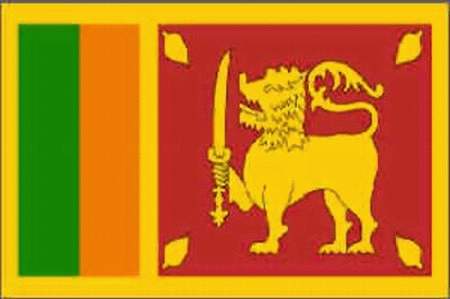|
|
|

Sri Lanka is an island in the Indian Ocean south east of India and known as the "Pearl of the Indian Ocean". It lays between longitudes 790 and 810 east and latitudes 50 and 100 north. From north to south, the isle is 425 kilometers long and from west to east, 225 kilometers wide. Sri Lanka with its 5,000 years old culture, lush vegetation and four different types of climate, ranging from the tropical in the coastal areas to temperate in the picturesque hill country, comprises of only 25,000 square miles.
According to the 'Ramayana', the ancient book comes out of Indian history, there are people lived here since 1800 B.C. and Sri Lanka known as 'Lanka' or 'Taprobane' those times. There was a powerful majestic king named Ravana and the war between Ravana and Rama in 1810 B.C. is a popular historical story of India, and over 1200 years since then, there is no written evidence about Sri Lanka. 'Mahawansa', the ancient historical book that includes complete details of history and historical events (Panorama of Festivals) of Sri Lanka, is an evidence to the three times visit of the Lord Buddha to Sri Lanka. From 543 B.C. on there were 175 kings ruled Sri Lanka until the British take over Sri Lanka completely in year 1815.
The brazen palaces of the Sinhalese kings, now in ruins, are testimony of their architectural skills. The ancient irrigation works - tanks - little seas by themselves were another example of their prowess in Hydrology. These reservoirs provided means for rice cultivation on a gigantic scale, so much so, that the country was called "The Granary of the East". Sri Lanka also had Rubber and Coconut besides spices such as Cinnamon, Cardimums, Nutmeg, and Clovers. Tea and Coffee, then in its nascent stages of cultivation, awaited future developments on an extensive scale. As an island, fishing was another natural industry. On top of all this, plumbago and precious stones were the other gifts of nature. All these natural resources, a salubrious climate (55 to 65 degrees in the hill country) and a geographically strategic position attracted the Western Powers seeking pastures new for trade and colonization. The way was open to them with the discovery of hitherto unknown routes to the East - thanks to the Portuguese explorer Vasco De Gama.
Naturally, the Portuguese were the first to come to Sri Lanka for trade and the spread of Christianity. Later they made it a part of their Empire. The Portuguese were there for about 150 years from about 1500 A.D. Some of them made Sri Lanka their permanent abode. In 1656, the Dutch defeated the Portuguese with the help of Sinhalese King and ruled the country for about 150 years. Like Portuguese, a large number of Hollanders remained permanently in Sri Lanka and they were called "Burghers", a Dutch word so common in Amsterdam. In 1798, the British defeated the Dutch, took procession of Sri Lanka and colonized it. And they named Sri Lanka as "Ceylon" and still many of the English known Sri Lanka as Ceylon. They were the over-lords until 1948 when Sri Lanka got its Independence and from fourth of February 1948 on, we celebrate our Independence on every fourth of February.
